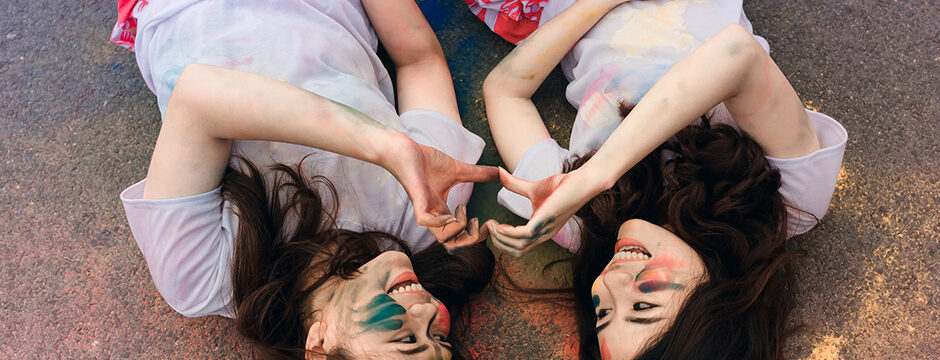Everyone loves a romance. The old, familiar journey from meet-cute to first kiss to a stuttering ‘I love you’. The giddy joy of a crush reciprocated…
We do them really, really well in YA. Boy meets girl, girl meets boy, boy meets boy, girl meets girl, girl meets boy and also a girl… we’re even getting better at showing the full range of romances teens can have. But here’s a question: why is it always romance?
From a very young age, we’re culturally groomed to expect this kind of love story. After all, love stories make up the central theme in 90% of songs, films, and books. (TV shows tend to get a little more leeway, by virtue of their length if nothing else, but still, the endless quest for coupledom usually occupies much of the central storylines. Even The Big Bang Theory gave Sheldon Cooper a girlfriend.) Really, anywhere there’s storytelling, there’s a love story.
Cultural grooming is so insidious that we don’t even notice it’s happening, which is why no one ever really questions why we place the seeking of a very specific type of love above all else. That is, heteronormative, romantic love, ideally with lots of soft-lit sex scenes that fade to black before anything messy actually happens. Why is a romantic couple ‘end-game’, but a best friendship is not? (It’s no wonder asexual and aromantic people have such a struggle getting their time in the spotlight. Our culture is literally telling them that their stories just plain aren’t as interesting as everyone else’s.)
Let’s call that what that is, shall we? Bullshiiiit.
Bullshit are friends less important than boys just because we don’t want to hop into bed with them. Bullshit do some relationships mean less because there’s no sex involved. Bullshit should the curtains have to close on a kiss.
So when I wrote Fragile Like Us, I had a specific goal in mind: no romance. I would write about girls and their friendships and I would put them front and center.
I call this book a platonic love story, because for me that’s what it is. It’s about the relationship between best friends – yes, relationship. Friendship is a form of relationship, and is its own love story. It’s a relationship with the same stakes, the same highs and lows, the same life-enriching, heart-breaking love. And there’s no love quite like that shared between teenage girls, you know. Fierce and absolute. Passionate. Underpinned by a burning loyalty.
I wanted to honor that love with the story of Caddy, Rosie, and Suzanne. I wanted to show what a difference it can make to see yourself through the eyes of a friend: how you can grow, how you can surprise yourself. I wanted to give that story the space it deserves – the whole damn book! – to explore all that complexity, all the light and dark that comes with true friendship.
I met my best friend when I was eleven, which was quite a while ago now. Last week we made a chess set out of glitter and glass. We ate Japanese take-out on her living room floor and then went out for cocktails. Together we have climbed a glacier, gone husky mushing, and inter-railed across Europe. We’ve had big adventures and small ones. Laughed and cried. Cursed the world. Shared sadness and secrets and sandwiches.
When I was thirteen, I started to write a story about a girl. I wrote stories all the time at that age, but this one felt different. Special. I printed out the first tentative chapters (no Wattpad then, no Google Drive, no internet on our phones, even) and gave them to my best friend to read. Chapter by chapter, the story grew between us, and we discussed the characters like friends. “If it’s ever published,” I wrote in a letter that she still has, “I’ll dedicate it to you.”
The story has come a long way since then, growing and changing over the years, but two things stayed the same: the fictional girl, and our real-world friendship. And now, impossibly, that story has made its way across the sea. It wears American clothes. And the dedication reads: “To Lora, my very best.”
Here’s the truth: most of us won’t ever get the grand, romantic love story, but we’ll all have a best friend. And isn’t that something worth celebrating?
Fragile Like Us is available as an extended excerpt through July 31st. Start reading now!


